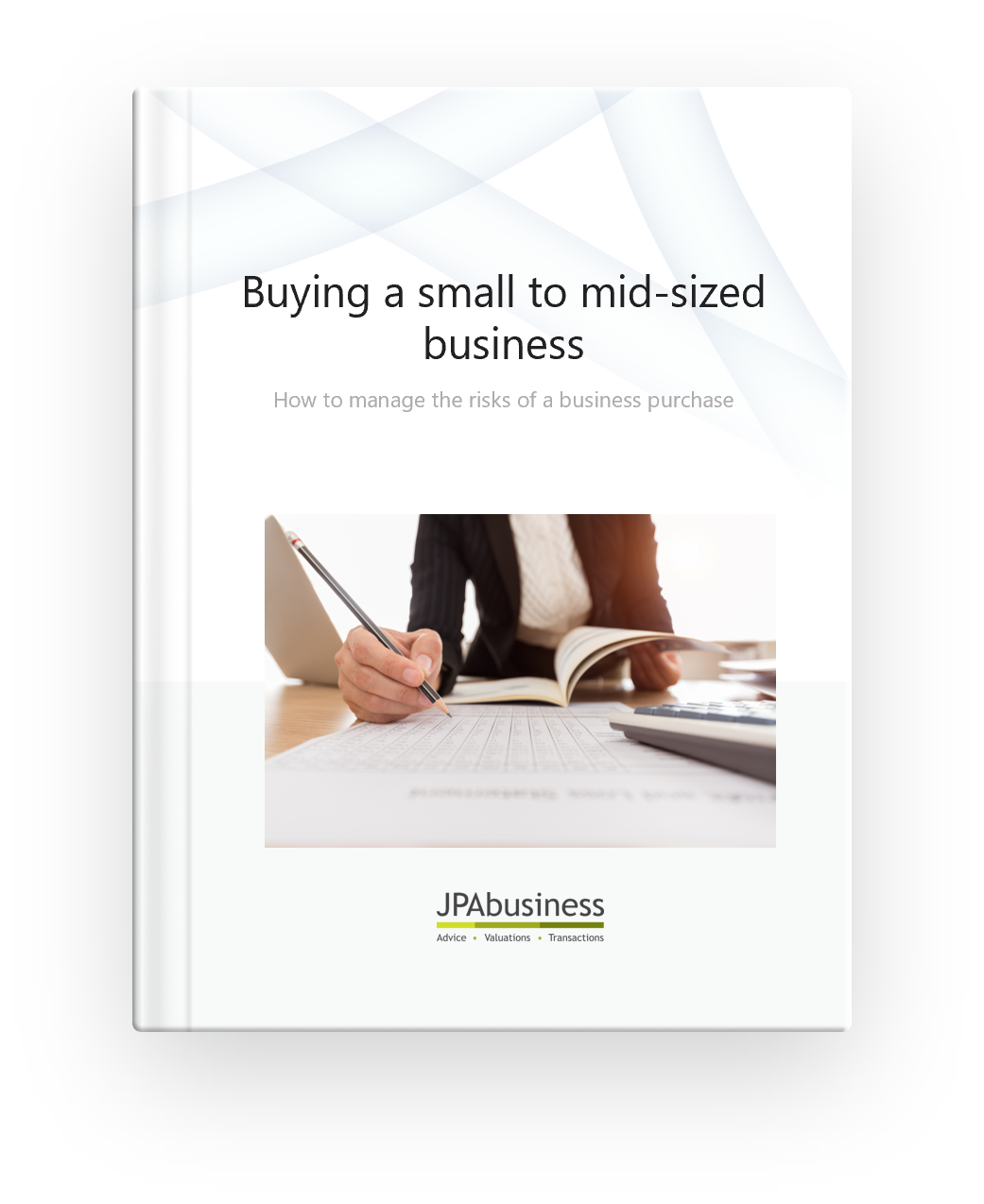
In this blog we’re sharing information and case studies first presented by Watson Mangioni lawyers David McGuiness and Fleur Gibson in our eBook, How to conduct due diligence when buying a business.
Please keep in mind the material in this blog is not advice and should be regarded as a general guide only.
What is the purpose of legal due diligence?
Comments by David McGuiness and Fleur Gibson
Watson Mangioni Lawyers Pty Ltd
The purpose of legal due diligence is to enable an intending purchaser to assess the legal risks associated with either a business or a company, in order to make an informed decision as to whether they will proceed with the transaction and, if so, on what terms.
Where issues are thrown up during legal due diligence and the buyer still wishes to go ahead, they may renegotiate the purchase price they’ve initially offered and also request additional warranties from the vendor.
Legal due diligence can also make a buyer aware of the risks and pitfalls in the business they’re buying, so they can factor that into their working capital budget going forward.
Does everyone do legal due diligence on potential business purchases?
Whether or not you do legal due diligence tends to be a factor of your appetite for risk and the price of the business you are considering purchasing.
For example, if you’re looking at buying a small business such as a café and you have worked in the industry all your life, you may feel you have enough of a handle on the potential risks that you won’t invest in legal due diligence. Instead you may engage a third party to do a little commercial due diligence for you, and then do a little of your own ‘bush lawyer’ due diligence.
Also, in situations where a company has gone into liquidation, the liquidator is selling the assets and the purchase price is quite low in relation to the business’ potential, a buyer will often buy the assets without doing much due diligence at all. This is because they appreciate they are getting a bargain.
For buyers who aren’t in either of those situations, due diligence can save them from making expensive mistakes.

How does legal due diligence interact with commercial and financial due diligence aspects?
Legal due diligence interacts substantially with commercial and financial due diligence and the best way to show this is with some examples:
Example 1
As part of a legal due diligence we often review the material contracts of a business or company. Typically those contracts are with customers and underpin the revenue of the business.
The legal due diligence interacts with commercial due diligence when the strength of those contracts is assessed.
Issues to consider when assessing the strength of contracts will include:
- How well prepared are the contracts?
- What is the term of the contracts?
- How easily may one party terminate a contract?
- When do the contracts expire?
- Do the contracts have any termination trigger events which will be triggered by the transaction itself?
The final point in that list is a key consideration when conducting due diligence and has two components.
Firstly, if it is an asset or business purchase, we would look to transfer the contracts from the vendor to the purchaser. Usually there is a provision in well-drafted commercial contracts that requires the consent of the contracting party in order to do that.
As part of the legal due diligence we would go ahead and identify those contracts where consent is required and then it becomes a commercial decision on the part of the purchaser and vendor as to what they believe is the likelihood the counterparty to the contracts will actually give consent. If the parties form a view that consent would not be given – which admittedly is fairly rare – it may be a deal breaker.
Secondly, if it is a company or share purchase, we would look at the material contracts to see if there is a ‘change in control provision’. This provision means a contract termination may be triggered when there is a change in control of the company being purchased.
In those circumstances we would need the consent of the other party to the contract for there to be a change in control. If that consent wasn’t forthcoming there would be potential for the contract to be terminated and that would create a risk for the buyer, as the revenue derived from that arrangement in the past may not be there going forward.
Example 2
An important part of legal due diligence is to investigate what existing legal claims and threatened claims currently exist against the purchase target.
If financial due diligence indicates the company has historical earnings of ‘X’ amount but those earnings are underpinned by one or two commercial arrangements, one of which is the subject of a dispute and unlikely to continue, that would be a way the legal due diligence impacts or identities a risk to the financial side.

What are the main items and issues that might be covered in a legal due diligence?
The answer to this question depends on the nature of the transaction, i.e. whether you are purchasing a business or assets, or whether you are purchasing all the shares in a company.
If it’s the former, the due diligence questions will be focused on the assets being transferred, rather than the liabilities. This is because, other than employee liabilities, the business’ liabilities will usually not be transferred across to the purchaser as part of the sale.
If, on the other hand, you’re looking buy all the shares in a target company, you will acquire all of the assets and all of the liabilities as they exist. In that case the legal due diligence will be more comprehensive as it will need to consider the liability side as well.
Some of the key areas for consideration when conducting legal due diligence on a company sale transaction are:
- Corporate structure
- Solvency risks
- Financials
- Material contracts
- Licences and approvals
- Banking and finance – If the company has loan facilities we would check whether any third parties have registered security interests in the company at the PPSR (Personal Property and Securities Register). A buyer would want to acquire the company free of any security interests so we would check those interests have been released prior to completion.
- Intellectual property – This would be a key factor if you were acquiring a technology business where the major assets were proprietary software, or a company that relies heavily on the goodwill associated with its brand name.
- Property leases – It is often necessary to get a landlord’s consent in order for a business to continue operating from the same business premises after a sale.
- Employees – Check what the employee liabilities are, whether the employees are paid large salaries or have large amounts of annual or sick leave banked up, and whether there is a long history of workplace claims – that would ring alarm bells for a potential purchaser.
- Litigation and legal claims – This is a key area, particularly if you’re buying a company, as you are buying the liabilities as well as the assets.
- Insurances – It is important to know whether or not the company has relevant insurance policies in place or, of particular interest, if they have applied for cover and been denied for any reason.
- Business and domain names – This is a key area, particularly for online businesses.
Legal due diligence case studies
Case study 1
We acted for a company that was acquiring a complementary business that owned some heavy vehicles. The purpose of acquiring the vehicles was to use them throughout Australia.
In due diligence we discovered the vehicles did not have the correct licences to allow them to move interstate and carry the weights required.
This was a critical issue and delayed the transaction while the vendor obtained the necessary licences. If that hadn’t been picked up our client may have faced heavy fines or delays in being able to operate the business.
Case study 2
A couple of years ago we operated for a purchaser acquiring a meat processing plant.
On due diligence we discovered the plant didn’t have current Environment Protection Authority (EPA) licences necessary for the amount of waste that was going to be emitted.
It can take months to secure such licences and without them it would have been impossible for our client to operate the business as they had planned. We had to make sure the relevant EPA licences were applied for and in place by the time of purchase.
Case study 3
In this case we acted for a client who was purchasing a service and maintenance business.
The business needed a particular electrical services licence to operate in Queensland and didn’t have it. Instead the business had been operating under someone else’s licence, but that agreement was not part of the sale.
We picked this up in due diligence and advised our client. The purchaser then requested, as a condition of the sale, that the vendor obtain a licence in Queensland.
Disclaimer: This blog is a general guide to matters to consider when acquiring a business or shares in a company. You ought to seek professional advice before taking action or relying on any topic in this blog. The material in this blog is not advice and should be regarded as a general guide only.
If you would like to learn more about the due diligence and business advisory services offered by JPAbusiness, please contact the team on 02 6360 0360 or 02 9893 1803.
For information about the wide range of commercial law services provided by Watson Mangioni Lawyers, go to www.wmlaw.com.au

